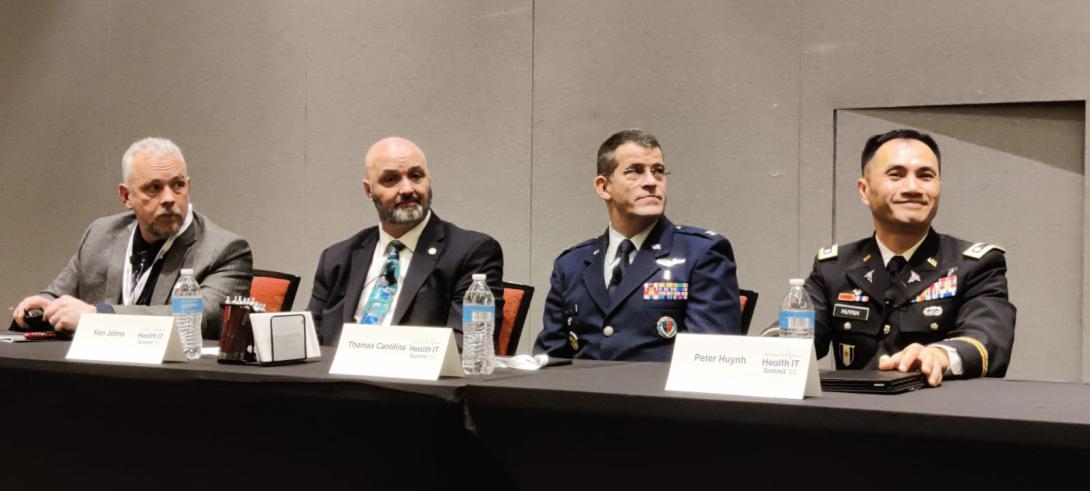Artificial Intelligence May Improve Medicine for Warfighters
As more health information is gathered about those served by the Department of Defense (DoD) health services, the volume poses a growing hazard.
“We are at critical mass,” said Lance Scott, acting technical director and solutions integration director at the Federal Electronic Health Record Modernization office.
“We’ve got so much data coming in,” added Scott, who explained how computers are starting to show visible signs of the drag the information deluge brings about.
Scott called for better solutions to deal with the problems of abundance without offering a path forward. Delays, Scott said, were evident, especially at the edge of the DoD’s global operation. Nevertheless, being able to process that data has inherent value, despite the shortcomings.
One speaker addressed how his agency is centralizing information to improve quality of life. “All of that data in one place to do big data analytics and to bring in and leverage artificial intelligence (AI), machine learning, predictive analytics; the things we’re going to be able to with that data, and that’s not just military service members who fit certain physical and health demographic, this is their spouses, their children; so this fairly diverse set of data that we can use to help us advance the state of the art of medicine,” said Ken Johns, chief technology officer for the Program Executive Office, Defense Healthcare Management Systems.
Johns underscored how such a big data pool would improve medicine for many beyond those directly served by his agency.
“The technology grows and grows around the ability in precision medicine,” said Thomas Cantilina, chief health informatics officer at the Department of Defense.
“I can have the best technology in the world that tells you exactly what’s going to happen to you in 10 days because they have so much machine learning and AI built into it, but if nobody uses it, we’ll see the same thing,” Cantilina told attendees at AFCEA Bethesday’s Health IT Summit 2023.

I can have the best technology in the world... but if nobody uses it, we’ll see the same thing.
Cantilina stressed the importance of training and encouraging all stakeholders to be involved with the technologies being adopted, and placing people at the center of these technologies.
“We still require people to be involved in the process,” Cantilina said, and explained how people have to deliver the care patients need, balancing technology and human contact.
Other opportunities include improving services through greater efficiency. “We have a lot of young [doctors] we put out in the middle of nowhere,” Scott said, explaining how doctors with fewer time constraints could provide health consultations online and take work off those who are in heavy demand. “It’s a great opportunity for us to move forward and leverage technology.”
The panel, “DHA Health IT: What's Next?,” also included Peter Huynh, chief digital officer, U.S. Army Medical Command, and moderator Col. Kevin Peck, USA, G-6 of the 18th Theater Enabling Command and MAP to Defense Health Agency Facilities as a chief information officer and IT Lead for ongoing GENSIS deployments.






Comments